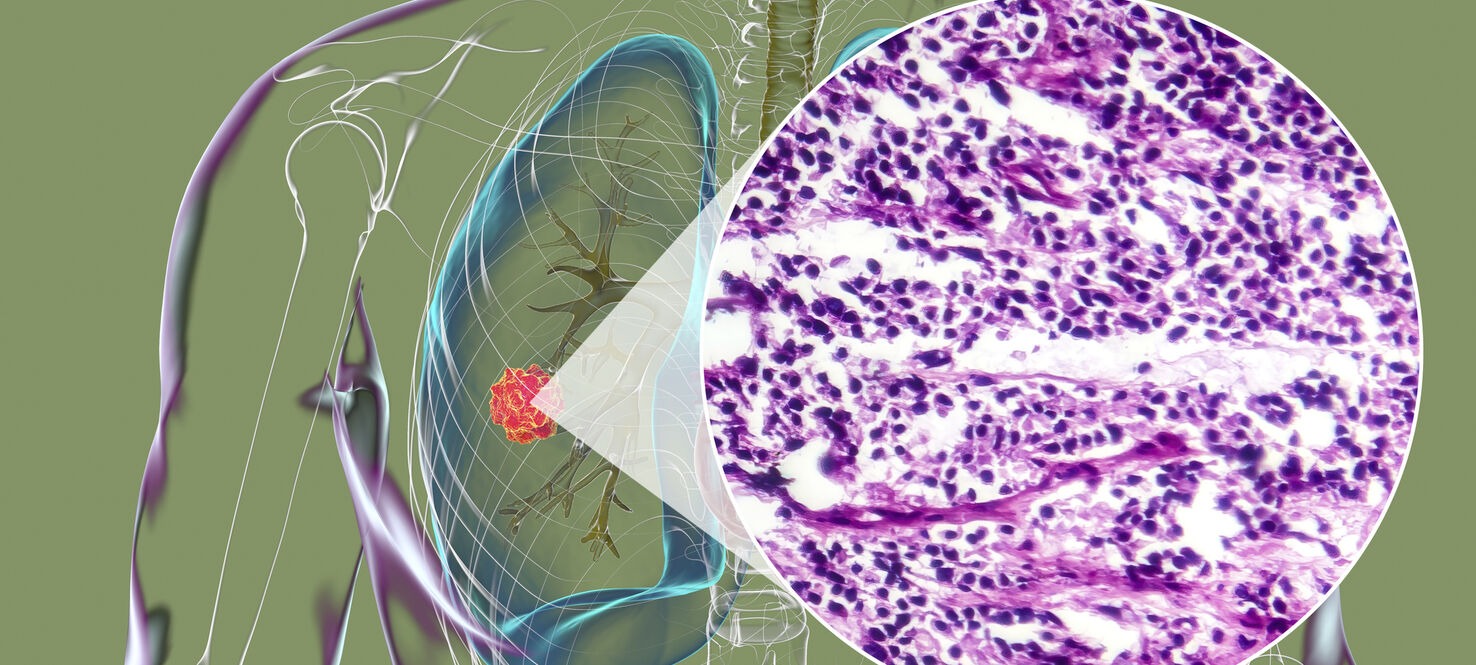Moffitt is First in U.S. to Offer New Lung Cancer Therapy
Moffitt Cancer Center has become the first health care provider in the United States to commercially treat a patient with extensive stage small cell lung cancer (SCLC) using the newly approved tarlatamab. The FDA approved the drug on May 16.
The case marks a landmark treatment for the disease, which is the deadliest form of lung cancer. According to the American Society of Clinical Oncology, the five-year relative survival rate for people with SCLC in the United States is 8% for women and 6% for men.

"It’s really an honor to be able to treat the first patient here at Moffitt Cancer Center,” said Jhanelle Gray, MD, chair of the Thoracic Oncology Department at Moffitt. “We’re very excited to be able to move the field forward not just from a clinical research standpoint but also from a standard of care standpoint. Anything that we can do for our patients to innovate this is where we need to lead and will continue to lead.”
Moffitt is the first healthcare provider in the US to commercially administer a newly-approved therapy for #SmallCellLungCancer.
— Moffitt Cancer Center (@MoffittNews) May 29, 2024
The @FDA recently approved #Tarlatamab for patients with advanced disease.@JhanelleGray of @moffittnews calls the landmark treatment an honor ⬇️ pic.twitter.com/LTuAutuQX3
Moffitt was one of the participating sites in the phase 2 clinical trial that received accelerated approval. According to Sonam Puri, MD, the treatment is an engineered antibody that attaches to the surface of small cell lung cancer cells and immune cells, bringing the two together and using T-cells to kill the cancer.

Sonam Puri, MD
“I think it’s a real breakthrough for small cell lung cancer,” said Puri. “When we see these cases they’re typically very aggressive. The traditional treatment options might only work for a short period of time before the disease progresses. This is really a one-of-a-kind approach that almost 40% of trial patients have responded to. These are numbers that we just haven’t been seen before with small cell lung cancer that has received and progressed on a prior treatment.”
Puri is not only encouraged by the response rate, but also the longer lasting effectiveness of the medication. Results of the trial were published in the New England Journal of Medicine, and showed that the treatment was effective for at least six months in nearly 60% of patients.
For the initial infusion, patients are given two doses in a 22 to 24 hour cycle in an inpatient setting. The next three infusions are given over eight hours in an outpatient setting or Moffitt’s IPOP service every two weeks.
The planning process for launching this new therapy involved months of planning a multidisciplinary approach, including a close collaboration between Moffitt’s Thoracic Oncology and Malignant Hematology teams as well as the Pharmacy and Infusion departments.

Leidy L. Isenalumhe, MD
“We are happy to be able to partner with the Thoracic Oncology Department to deliver this revolutionary therapy for patients battling small cell lung cancer” said Leidy L. Isenalumhe MD, director of clinical operations in Moffitt’s Malignant Hematology Department and co-medical director for IPOP service. “This process exemplifies Moffitt’s commitment to patient-centered, multidisciplinary, team-based care with the goal of giving patients and families the best possible experience from diagnosis to treatment to survival.”



